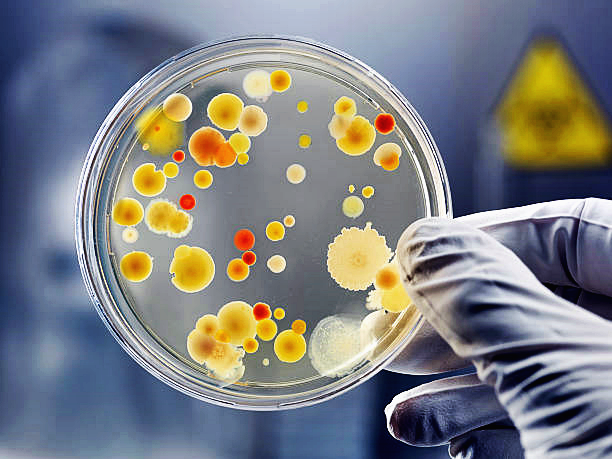Unveiling the Mysteries of the Human Microbiome
The human microbiome is an astonishingly complex ecosystem composed of trillions of microorganisms living harmoniously within and upon our bodies. Recent advancements in science have illuminated the profound impact these microbes have on our overall health, influencing everything from digestion and metabolism to the functioning of our immune system. By delving deeper into the intricate relationship between humans and their microbial inhabitants, we can begin to unveil the mysteries of this remarkable biological network that plays a crucial role in our daily lives.

Understanding the Microbiome
The term “microbiome” refers to the collection of all microorganisms, including bacteria, viruses, fungi, and protozoa, that reside in a specific environment. In the context of humans, it primarily concerns the vast array of microbes inhabiting our gastrointestinal tract, skin, mouth, and other spaces.
It is estimated that the human body hosts around 40 trillion microbial cells, outnumbering human cells by a ratio of approximately 10 to 1. This seemingly small community has emerged as a crucial player in our health, engaging in numerous life-sustaining processes.
The microbiome is as unique as an individual's fingerprint, shaped by various factors such as genetics, diet, lifestyle, and environment.
Each person's microbiota composition continues to evolve throughout their lifetime, adapting in response to changes in health and surroundings. Thus, the microbiome is not merely a collection of microbes; it is a dynamic community that interacts constantly with its host and the environment.
The Importance of Diversity
One of the most critical aspects of the microbiome is its diversity.
A diverse microbiome is often associated with better health outcomes, while a lack of variety has been linked to various diseases and conditions. Research suggests that a richer and more diverse microbial community enhances the body's ability to fend off infections, manage inflammation, and support metabolic processes.
Consequently, promoting microbiome diversity can take many forms, from nutrition to lifestyle choices.
A diet rich in fiber, fermented foods, and diverse plant sources encourages a healthy microbiota by providing various nutrients and prebiotics. Introducing new foods into one’s diet regularly can help stimulate the growth of different microbial populations, enhancing overall microbiome health.
The Role of the Gut Microbiome
The gut microbiome has received significant attention due to its essential role in digestion and metabolism.
The complex interactions within the gastrointestinal tract aid in breaking down food, synthesizing vitamins, and absorbing nutrients. Additionally, the gut microbiota contributes to the fermentation of dietary fibers, producing short-chain fatty acids (SCFAs) that have beneficial effects on the intestinal lining and overall health.
Moreover, the gut microbiome is pivotal in regulating the immune system.
About 70% of the immune system resides in the gut, and the diverse microbiota helps educate and modulate immune responses. Beneficial microbes can protect against harmful pathogens, reduce inflammation, and potentially even influence autoimmune disorders.
Microbiome and Mental Health
This relationship is often referred to as the "gut-brain axis," emphasizing how gut health can impact mood, behavior, and cognitive function.
Research has demonstrated that certain probiotics can influence neurotransmitter production, thus affecting mental health conditions like anxiety and depression.
This connection suggests that maintaining a healthy gut microbiome could be beneficial for managing mental health and improving overall well-being.
Factors Affecting the Microbiome
Multiple factors can influence the composition and diversity of the microbiome.
These include diet, medications (especially antibiotics), stress levels, and environmental exposure. Each factor can either foster a healthy microbiota or disrupt it, potentially leading to various health issues.
For instance, antibiotic use, while essential for treating bacterial infections, indiscriminately kills both harmful and beneficial bacteria in the gut.
Such disturbances can lead to a condition known as dysbiosis, which is characterized by an imbalance in the microbiota. Dysbiosis has been associated with conditions such as obesity, inflammatory bowel disease, and even metabolic disorders.

Diet’s Impact on the Microbiome
As mentioned earlier, diet plays a fundamental role in influencing the microbiome.
A diet high in processed foods, sugars, and unhealthy fats can negatively impact microbial diversity and metabolism. Conversely, a diverse and balanced diet rich in whole foods fosters a thriving microbiome.
Fermented foods such as yogurt, kefir, sauerkraut, and kombucha are especially beneficial as they introduce beneficial bacteria directly into the gut.
The consumption of prebiotic foods, like bananas, onions, and garlic, also provides essential nutrients to support the growth of healthy microbial populations.
Microbiome Testing and Personalization of Health
With the growing interest in the human microbiome, various companies are offering microbiome testing kits that analyze an individual’s microbial composition.
These tests can provide insights into one’s gut health and suggest dietary and lifestyle changes tailored to promote a healthier microbiome.
However, it’s essential to approach these tests with caution.
While they can offer valuable information, the science of the microbiome is still in its infancy, and interpretation of results can vary widely. Consulting a healthcare professional before making significant changes based on test results is advisable.
Challenges in Microbiome Research
Despite the exciting advancements in microbiome research, several challenges remain.
The diverse nature of the microbiome means that individuals may respond differently to various interventions, making it difficult to create standardized treatment protocols.
Moreover, many studies are still in preliminary stages, and the full extent of the microbiome's interaction with human health and disease is not yet completely understood.
Long-term studies are necessary to establish definitive causal relationships between specific microbial populations and health outcomes.

Future Directions in Microbiome Research
The future of microbiome research is promising, with new technologies continually emerging to analyze microbial communities with greater precision.
Advances in genomics and bioinformatics may lead to personalized nutrition and therapeutic strategies that cater to individual microbiome profiles.
Additionally, exploring the efficacy of probiotics and prebiotics in clinical settings may enhance our understanding of their roles in maintaining health.
Ongoing research into the microbiome's relationship with other systems in the body will further illuminate its significance in human physiology and disease prevention.
Conclusion
As we continue to unveil the mysteries of the human microbiome, it has become clear that these microbial inhabitants play a fundamental role in our health and well-being.
By fostering a healthy and diverse microbiota through mindful dietary choices, managing stress, and understanding the importance of antibiotics, individuals can take proactive steps toward improving their microbiome health.
This expanding field of science has potential implications for various aspects of medicine, nutrition, and overall public health.
The more we learn about the microbiome, the more we can appreciate the intricate ways in which it influences our lives and contributes to our health. The journey to understanding the human microbiome is just beginning, and its revelations may fundamentally change our approach to health and disease in the years to come.
댓글